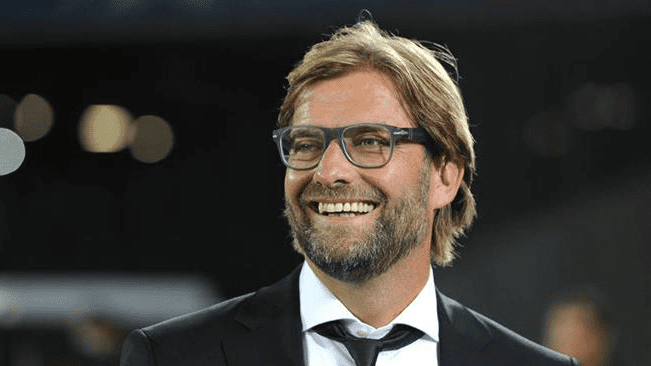What I Learned Watching Jürgen Klopp Train Liverpool
I was fortunate to have the opportunity to watch Jürgen Klopp while he trained his Liverpool side and the legendary manager certainly didn’t disappoint! Since leading the perennial darkhorse Dortmund to new heights in Germany, Klopp instantly became one of the must-have managers for any top flight club looking for somebody to take the reins.
However, it was the prestigious Liverpool that came knocking when Klopp announced that he’d be leaving Dortmund in 2015. Today, we’re nearly a year and a half into Klopp’s run at the helm of one of England’s most-winningest clubs and his style and ideals have undeniably changed Liverpool for the better.
Just watching Klopp lead his club made me realize that there was so much to learn, so I have compiled a list of lessons all coaches can take to their respective teams, no matter the age, skill, or level.
Have A Plan
Jürgen was not above carrying around a piece of paper with the session plan on it and referring to it when needed. Too many coaches see this as a sign of weakness as they believe it might seem like they need help to execute on their noted practices. Unfortunately, that stigmatism is unfair as everyone needs a reminder of the critical points at times — so don’t fall into that easy trap! The more concise and insightful you can be, the better — if that means utilizing a physical session plan, so be it.
Make It Fun
The Liverpool players were not above a basic, fun game during warm-ups, all determined by a quick shout from the manager. The squad loved it and spent their fair share of time laughing and joking with each other. This a light-hearted feeling that many suggest has been missing in top flight football for quite awhile: the fun factor. For many big clubs, the egos and wages of athletes can have a heavy hand in the effort and practice of a training session — but at Liverpool, that couldn’t be more different.
When you have fun, the results will come.
Trust Your Colleagues
Different parts of the session had Jürgen’s colleagues stepping in and instructing, but he never undermined them and always let them finish their point before applying his wisdom and instruction. Again, when speaking about egos in world football, for most managers, it’s their way or the highway, but not with Klopp.
Remember, having extra perspectives and opinions are always valuable, no matter your level.
Talk To Your Players Individually
Whenever there was a break in the activities, Jürgen took the time to speak one-on-one with a player –- he even got around to most of the players over a single training session. That personal time helped solidify the trust and understanding between player and coach. If your players don’t like you as a manager, dislike your system or tactics, or don’t trust their teammates, then you’re sunk before you’ve even started.
Demand Excellence
While working on a shadow play to goal, Klopp noticed that his players stopped and watched any teammate that found themselves in a one-on-one situation with the goalkeeper. He quickly explained that this was unacceptable and that scoring in a one-on-one with the goalkeeper was not a foregone conclusion. Saves are made and posts are hit, so the whole team must continue to play until it has concluded.
The next time this happened, Daniel Sturridge was through on goal and Simon Mignolet saved it, but Philippe Coutinho was there to follow up with a delightful lob into the top corner.
Stimulate Your Players Minds
The team was then involved in a 3/4 field passing pattern exercise and, on occasion, a new ball was entered into the exercise. The old ball was immediately forgotten and the team reacted to the new one in an attempt to quickly get back into their shape and build an attack again. This method is fantastic for reacting to any turnover of the ball and seeing how fluidly the team can respond.
Attention To Detail
After an attempt on goal, the Liverpool team retreated to their own half and some weren’t watching the ball as they did this. Jürgen was very passionate in conveying the importance of facing the ball at all times –- the players did not need to be corrected again.
Be Realistic
One particular quote stood out from Kloop, saying: “In the first moment of defending, there is no formation.”
He then went on to explain that the closest player must delay the attack in order to allow teammates the time needed to get back into a good defensive shape. Forgiving a misstep in tactics is much easier than clawing back from an allowed goal, so knowing when to improvise on-the-fly is an essential part of the game.
Be Humble
At the end of each training session, Jürgen went to the far end of the line of fans hoping for a picture or an autograph and slowly worked his way to the front. His players also spent a considerable amount of time with the fans as well — showing that they were not too big to do this and it showed great humility!
Remember, no matter how much money you’re paid or how high the stakes are, football is just a game. When you take the time to reflect, refocus, and have fun, the results will often be more beneficial in the future.
Watching Klopp for even a couple hours has made a world of difference in my coaching — how can you improve?
(Thanks to SoccerNews for the photo!)
How useful was this post?
Click on a star to rate it!
Average rating 0 / 5. Vote count: 0
No votes so far! Be the first to rate this post.




